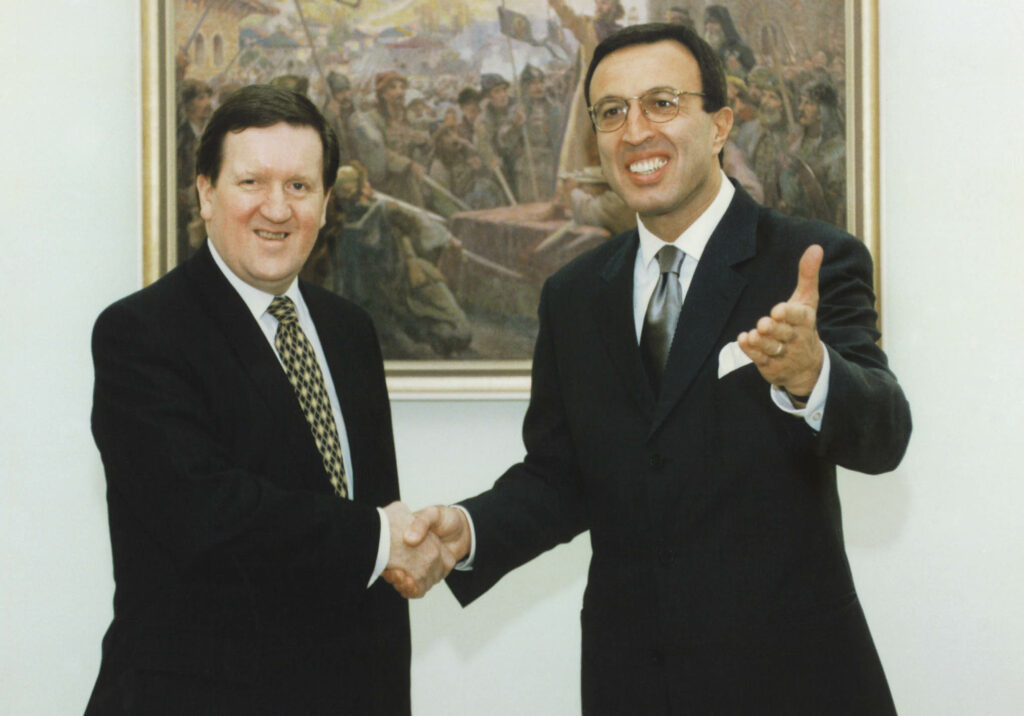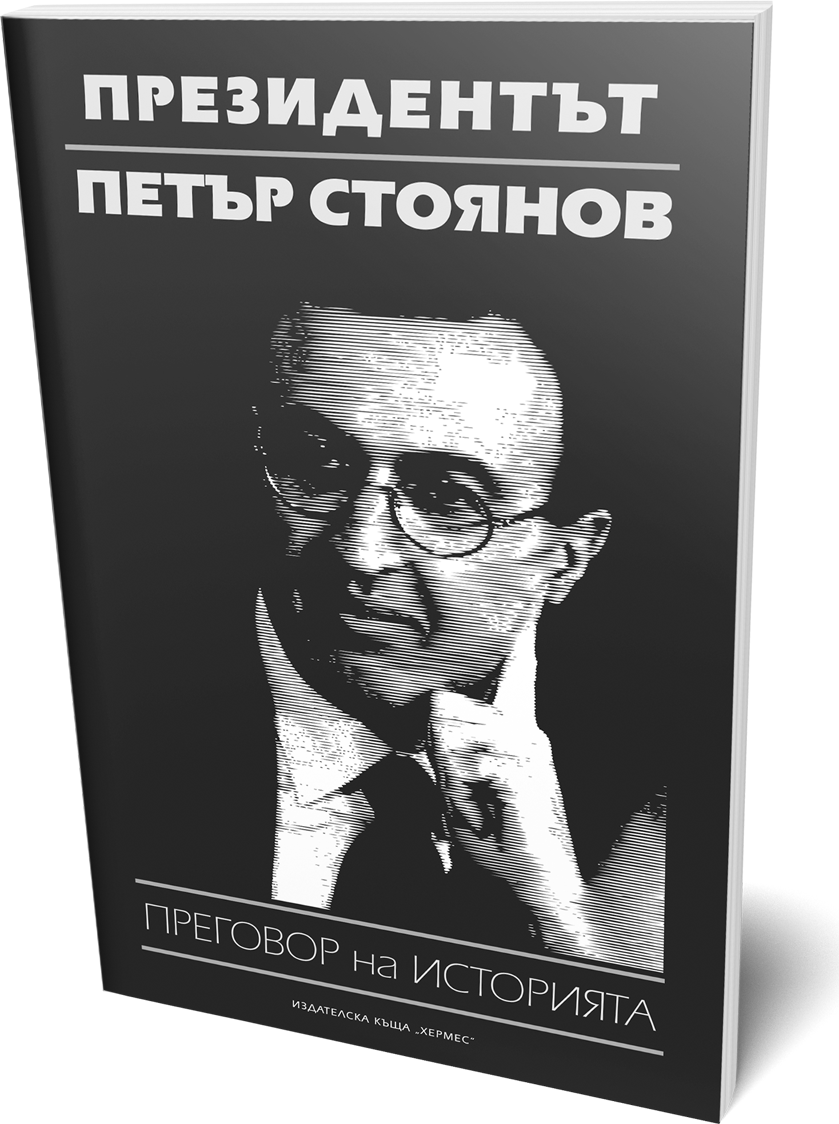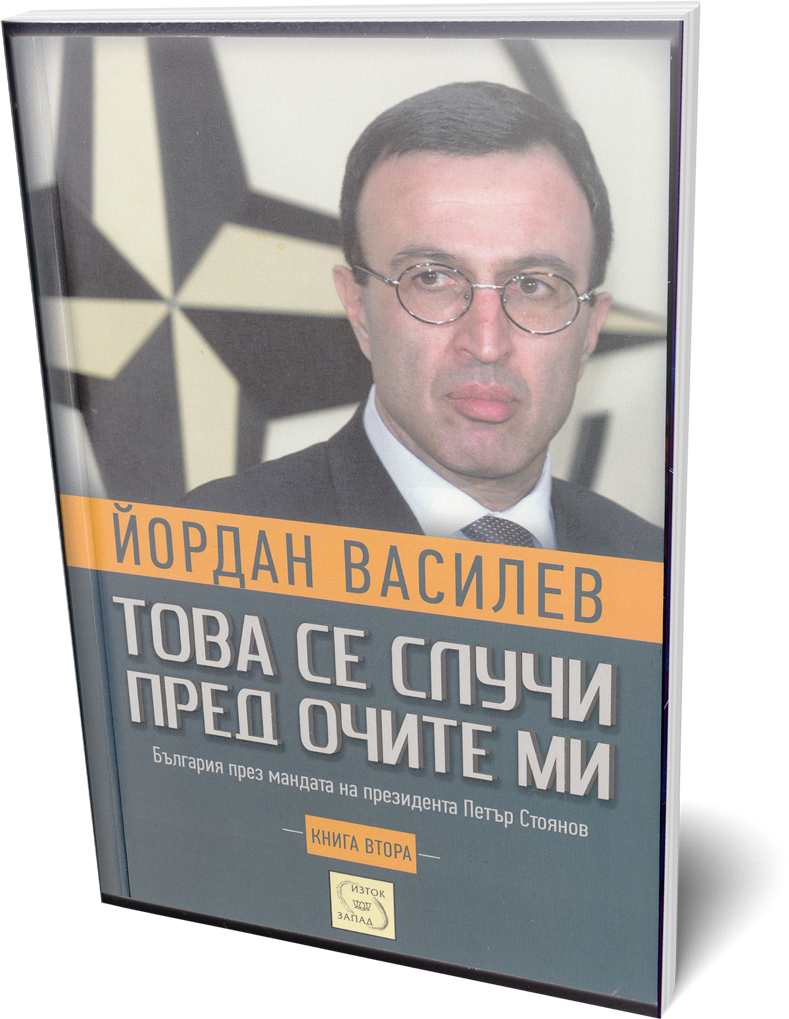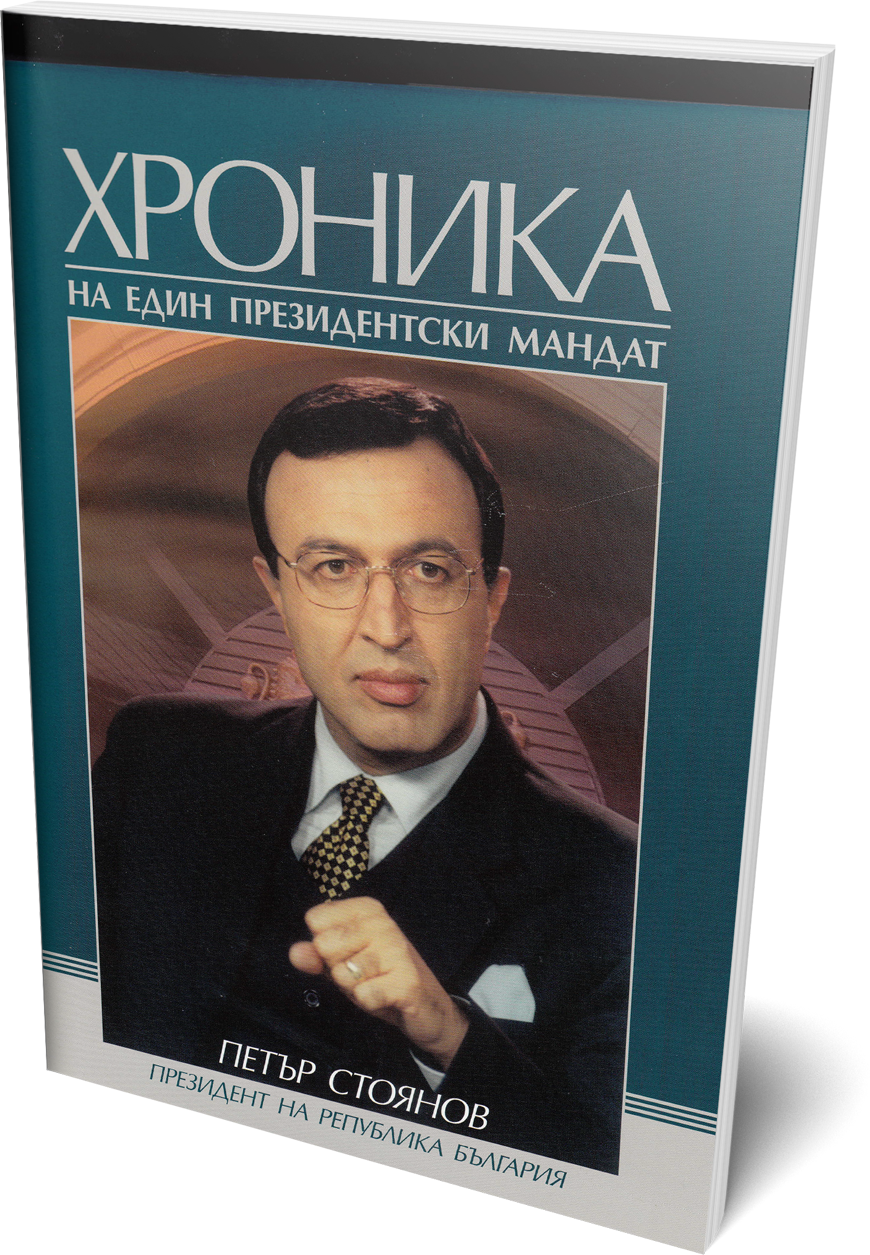Petar Stoyanov, SPECIAL TO THE WASHINGTON TIMES
PUBLICATION: The Washington Times
SECTION: OPED
DATE: March 28, 2002
PAGE: A17

The debate over whom NATO will invite to be new members at its November summit meeting in Prague is under way – with Estonia, Latvia, Lithuania, Slovenia, Slovakia, Romania and my own country of Bulgaria all in the running.
Inevitably, this debate will get political and technical. The political reforms and defense capabilities of the different candidate countries will come under scrutiny. These are very important aspects of the debate, but I firmly believe that NATO enlargement must be understood above all as a cause – something higher than ordinary politics. With this next round of enlargement, the West has a historic opportunity to complete the process begun after World War II of making the whole EuroAtlantic landmass stable and democratic.
It is time to close the door on the Cold War, which exacted an enormous toll on both East and West. Millions east of the Iron Curtain were stripped of their human rights, their dignity and their property. Some dissenters paid with their life. (Therefore, it is unfair to those people to argue today that the Cold War ended without casualties.) Those in the West were spared oppression, but lived in fear and had to spend billions of their tax dollars on defense that might otherwise have been used to fund schools, bridges or healthcare.
What was the sense of the Cold War, the suffering of millions of East Europeans, and the high political and economic price paid by the United States and Western Europe, if we now leave the job unfinished? The sad story of the Cold War is not yet over. The lifting of the Iron Curtain put an end to communism, but not the problems it created. Today, Eastern Europeans face complex challenges as they make their post-communist transition to democracy – from jump-starting once centrally planned economies, to resolving ethnic disputes, to building effective political institutions. Until these problems are solved – and Eastern Europe is secure and democratic – neither Europe nor the United States can claim to have accomplished their historic mission.
The people of Eastern Europe know that they must put their own house in order. However, to do so they need support and encouragement from the West. The promise of NATO membership provides a powerful motivation to complete post-communist reforms.
For former communist countries, NATO would provide both a security guarantee and a source of confidence for the future. NATO membership would end two generations of a “Yalta syndrome” in which East Europeans fear geopolitical trade-offs or the emergence of new spheres of influence, and would help them firmly stay the course towards liberal democracy and free market economy. The benefits of NATO enlargement are not merely one way. NATO is not a charity club. Each new member must contribute to the common security of all NATO allies. In the wake of September 11, East Europeans were among the first to sign up to President Bush’s coalition against terrorism. Bulgaria and Romania sent contingents to Afghanistan.
Similarly, during the Kosovo crisis, Bulgaria and Romania – both neighbors of Yugoslavia – were among the first to support the Alliance-led operation against the regime of Slobodan Milosevic. We created a security belt friendly to NATO around Yugoslavia and, acting in solidarity with the Alliance, prevented any conflict from spilling over into the rest of the region. Bulgaria now has units in Kosovo and Bosnia as part of NATO operations there. Why? Because after 45 years of communism and 12 years of post-communist transition, we know the costs of extremism and fanaticism. Our present and future labors must not be jeopardized by fanatical supporters of extreme causes.
As the debate over NATO enlargement unfolds, let us stay focused on what is essential. I believe that the cause of advancing democracy and security across the whole Euro-Atlantic territory, if presented as such rather than as a dull technocratic or bureaucratic policy issue, is one that American and European taxpayers alike would willingly support.
Petar Stoyanov served as the president of the Republic of Bulgaria from 1997 to 2002. He is an adviser to the German Marshall Fund of the United States.

January 1999. Meeting in
Sofia with NATO Secretary
General Lord George
Robertson.








